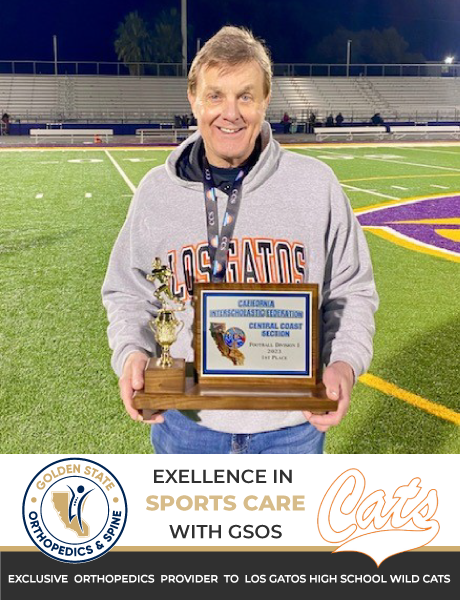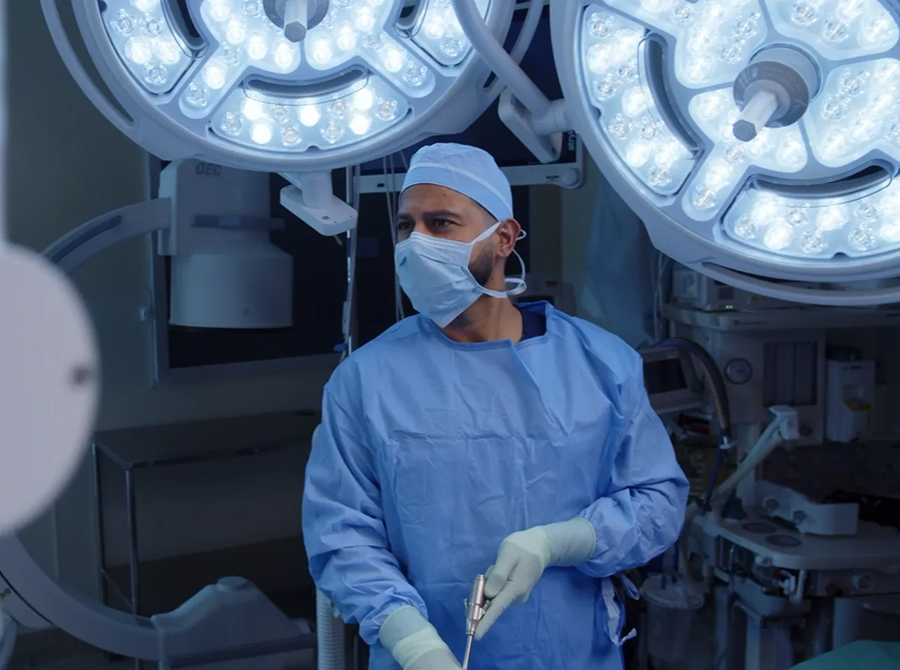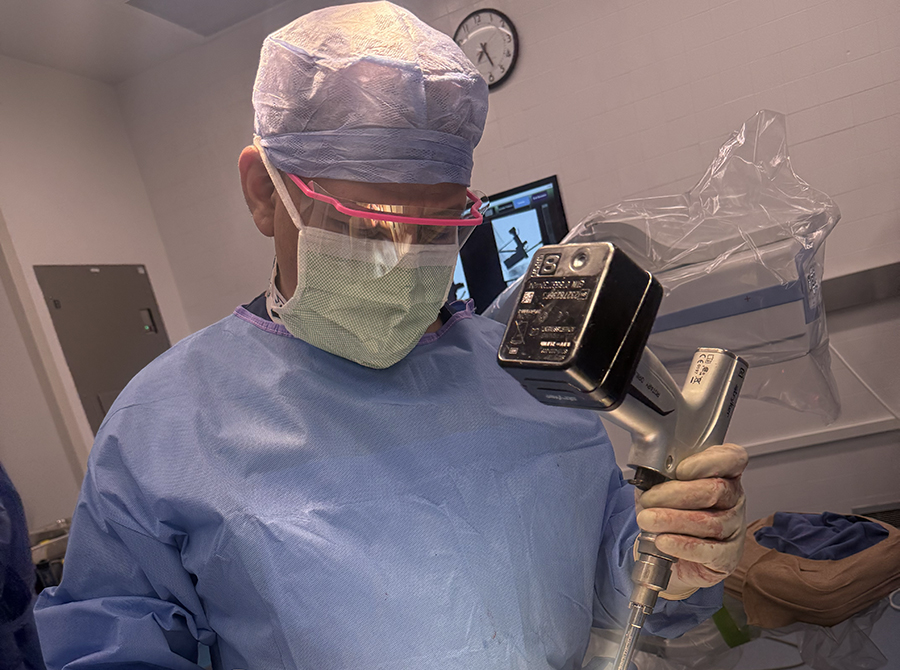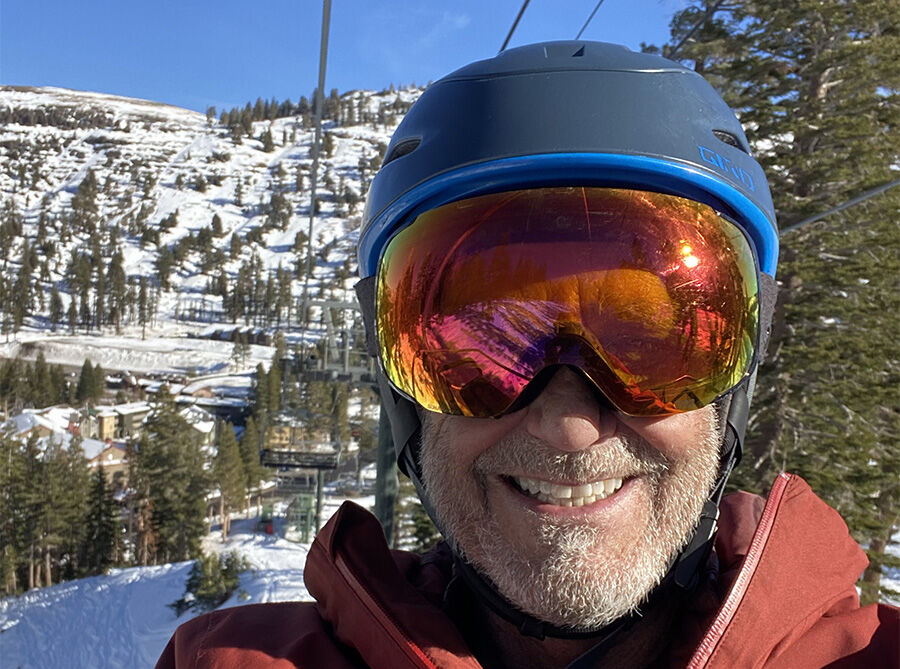The Los Gatos High School Wildcats football team is the CCS Division 1 Champion!
They are moving on to a California Bowl game this Saturday, November 16th 2023!
Team Dr. Kevin Murray of Golden State Orthopedics & Spine, and the GSOS team applaud their achievement.

WHAT DOES A TEAM PHYSICIAN DO?
A team physician in sports medicine plays a crucial role in the health and well-being of athletes. Their responsibilities extend beyond traditional medical roles, as they are often integral members of the sports medicine team. Here are some key responsibilities of a team physician in sports medicine:
- Injury Prevention:
- Collaborate with coaches, athletic trainers, and other healthcare professionals to develop and implement injury prevention programs.
- Provide guidance on proper warm-up routines, conditioning exercises, and techniques to reduce the risk of injuries.
- Pre-participation Physical Examinations:
- Conduct thorough physical examinations to assess the overall health and fitness of athletes before they participate in sports.
- Identify any pre-existing conditions or potential risk factors that may affect an athlete’s performance or health.
- Diagnosis and Treatment:
- Evaluate and diagnose injuries or medical conditions that athletes may encounter during training or competition.
- Develop and implement treatment plans, which may include medications, rehabilitation exercises, or surgical interventions.
- Emergency Care:
- Be prepared to respond to medical emergencies on the field or during competitions.
- Provide immediate care for injuries such as fractures, dislocations, or concussions.
- Rehabilitation:
- Work closely with physical therapists and other rehabilitation specialists to design and oversee rehabilitation programs for injured athletes.
- Monitor the progress of athletes during the rehabilitation process and make adjustments to the treatment plan as needed.
- Communication:
- Maintain open and effective communication with coaches, athletic trainers, and other members of the sports medicine team.
- Keep athletes informed about their health status, treatment plans, and expected recovery timelines.
- Health Education:
- Educate athletes about nutrition, hydration, and lifestyle choices that can impact their performance and overall health.
- Promote awareness of the importance of rest and recovery in preventing overuse injuries.
- Travel with the Team:
- Accompany the team during competitions, ensuring that medical care is readily available.
- Address any health-related concerns that may arise during travel.
- Documentation:
- Maintain accurate and up-to-date medical records for each athlete, including injury history, treatment plans, and progress notes.
- Ensure compliance with relevant medical confidentiality and privacy regulations.
- Research and Continuing Education:
- Stay informed about the latest developments in sports medicine through ongoing education and research.
- Apply evidence-based practices in the assessment, treatment, and rehabilitation of sports-related injuries.
By fulfilling these responsibilities, a team physician contributes to the overall health, safety, and performance of athletes within the sports medicine context.



